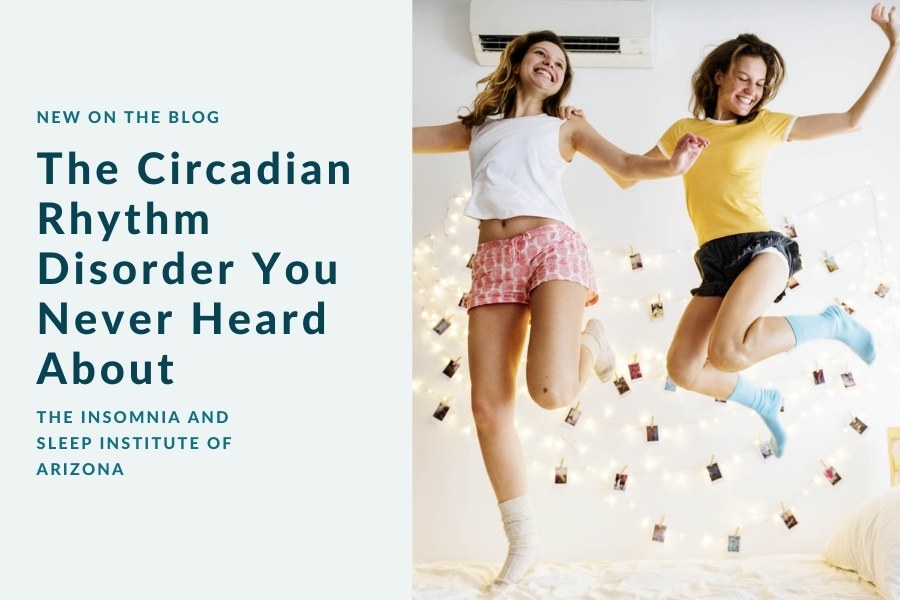There are many types of circadian rhythm disorders, and all are treated at The Insomnia and Sleep Institute of Arizona. Here, we offer unprecedented staffing levels at an outcome-driven facility that is home to the “Top Doc” of the area in sleep disorders for the past six years straight. As the Face of Sleep Medicine in Phoenix, we set the standard in sleep care, treating patients as young as two years old. Although circadian rhythm disorders are not the most common type of sleep disorder, plenty of people struggle with disruptions of their circadian rhythm. This rhythm is another term for the body’s internal clock, which is in charge of regulating all kinds of biological processes like hormone production, brain wave activity, and cell generation within a 24-hour period.
“Sleeping sickness” is now a named circadian rhythm disorder, following an international study from the O’Donnell Brain Institute. You may not have heard of sleeping sickness before, but it’s actually one of the deadliest diseases in Africa. It occurs when the biological clock speeds up, wreaking havoc on many vital functions including sleep. Researchers hope that by studying the side effects of this parasitic disease, they can better understand which genes are affected in order to create a therapeutic option. Currently, the standard strategy is a toxic treatment—that can sometimes be fatal. According to one researcher, “Sleeping sickness is really a misnomer. Our work shows that the underlying mechanism of altered sleep in this disease is caused by a circadian disorder.”
A Sleep Disorder Caused By Parasites
The technical term for sleeping sickness is trypanosomiasis. It is transmitted via tsetse fly bites and is a threat to tens of millions of people throughout the sub-Saharan countries. Once the parasite is inside the body, symptoms soon begin including fever, itching, muscle weakness, and of course an inverted sleeping cycle. Finally, the parasite gets into the central nervous system. At this point, it is possible for the infection to kill the host. This might happen in just a few months or after many years.
A study in Nature Communications that involved mice revealed that sleeping sickness symptoms develop quickly. They often happen prior to mass parasitic accumulation in the brain. The bio clocks of infected mice sped up once parasites got into the bloodstream, and that’s when inverted sleep cycles began. This is also when fevers and hormone changes take place, which mimics the symptoms of humans with sleeping sickness. However, not every type of parasitic disease interferes with the circadian rhythm. For example, mice with malaria did not experience any changes to their biological clocks.
Our Clocks and Disease
The researchers say, “How the clocks are changing remains a mystery. We need to study further whether the host is producing a molecule in response to the infection, or if there is a secretion from the parasite.” This particular study is the second in a collaborative work including Luisa Figueiredo, PhD, whose published work revealed parasites also have biological clocks.
The researchers hope that these findings can be helpful to patients who cannot handle arsenic-based toxic treatments that are currently the only cure for sleeping sickness. Currently, there is no vaccine for this disease.
Circadian Rhythm Disorders
This is just one of many such disorders, and most people who do not travel to sub-Saharan Africa will not have to worry about it. However, there are plenty of circadian rhythm disorders that are present in the United States. If you or your child seems to struggle with sleep-related issues, the sooner you seek help from a sleep expert the faster you can improve your quality of life. Sustained, untreated sleep disorders of any kind are linked to comorbidities because sleep is essential to function.
If you want to schedule a consultation with a sleep specialist, no referral from your GP is needed to be seen at The Insomnia and Sleep Institute. Work with leaders in sleep medicine who are committed to providing you with a correct diagnosis today. Connect with The Insomnia and Sleep Institute by calling the office, or for the quickest response complete the online form.





